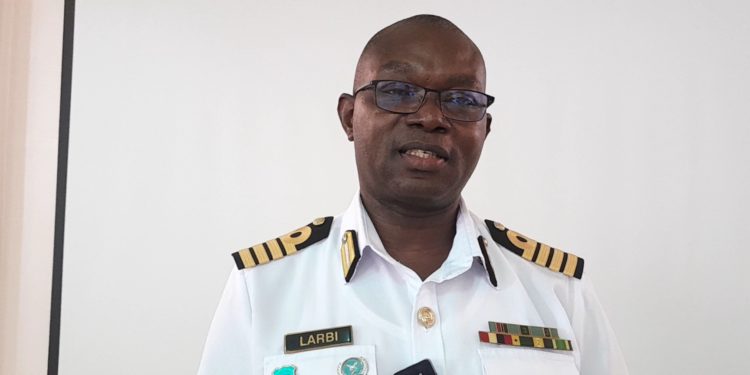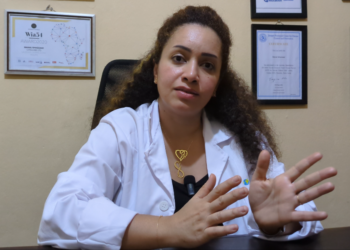By Kemo Cham in Accra
For the media to take its rightful place in national development, it needs to establish its credibility in the eyes of the public, particularly people in the security sector, a security official and communication expert has said.
Captain Michael Addo Larbi of the Ghana Navy told ManoReporters in Accra on Wednesday that the media needed to prove that it is also an important stakeholder in ensuring security for it to be considered relevant in national development efforts.
“That bridge can be bridged up and made shorter and there can be some sort of transparency and credibility and collaboration in that particular path,” said Mr Larbi, adding: “It will help streamline all the tensions that come up in respect to how the security services or media handles its work and make it easier for the nation’s benefit.”
Captain Larbi, who is the Deputy Director General at the Public Relations Department of the Ghana Armed Forces, spoke on the sidelines of an ongoing training of journalists and communications officials on maritime security reporting at the Kofi Annan International Peacekeeping Training Center (KAIPTC) in the Ghanaian capital. The training is meant to promote professional reporting on maritime security with the goal of raising awareness in the public about the sector.
The training was designed in the context of the perennial insecurity in the Gulf of Guinea (GoG), which has been the subject of global concern over the last decade.
The GoG is a vast and diverse geographical region that stretches from Senegal in Western Africa to Angola in Central Africa, covering approximately 6,000 km of coastline. It is an important shipping route due to its many natural harbours. The region is also highly endowed with marine and natural resources, among others, which has over the years attracted criminal gangs.
Larbi was one of two facilitators who made presentations on Wednesday to the 25 course participants drawn from across West African nations, including Sierra Leone, Liberia, Cote d’Ivoire and the host country. His presentation on Law and Ethics in Maritime Security Reporting was designed to promote ethical practice in journalism to encourage effective collaboration in reporting maritime security.
A communication expert by training, Captain Larbi had a distinguished career in journalism before joining the Ghana Armed Forces (Ghana Navy), where he is currently the Deputy Director General of the Public Relations Department.
Among a long list of credentials, he served in The Gambia as part of the ECOMIG Peacekeeping Troops. He was spokesperson for the multinational forces that were deployed in the country following the 2016 disputed elections that led to the forcing out of former leader Yahya Jammeh who refused to accept the results, citing alleged irregularities.
In his presentation on Wednesday, Captain Larbi outlined the challenges facing maritime security reporting in the region, which he said included lack of professional knowledge on the matter, as well as unethical conducts of some members of the profession.
Besides the need to resist the tendency of distorting information for selfish gains, he stressed that specialization is one of the best ways to ensure effective reporting on the sector.
“In journalism, we often say that speed is important, but accuracy supersedes speed,” he said during the over two hours lecture, while emphasizing on the importance of ensuring professional journalism through accurate reporting.
Earlier, Navy Captain Ebenezer Kwame Yirenkyi lectured on collaboration and cooperation among maritime security stakeholders. He said that addressing maritime security challenges was beyond individual countries’ capacities.
The Yaounde Code of Conduct is one of Africa’s foremost maritime security response tool, which outlines how the Gulf of Guinea region can address maritime security challenges. At the core of it is collaboration and cooperation.
The GoG is divided into zones in the document, with Ghana, Cote d’Ivoire, Sierra Leone, Liberia and Guinea constituting one zone.






















